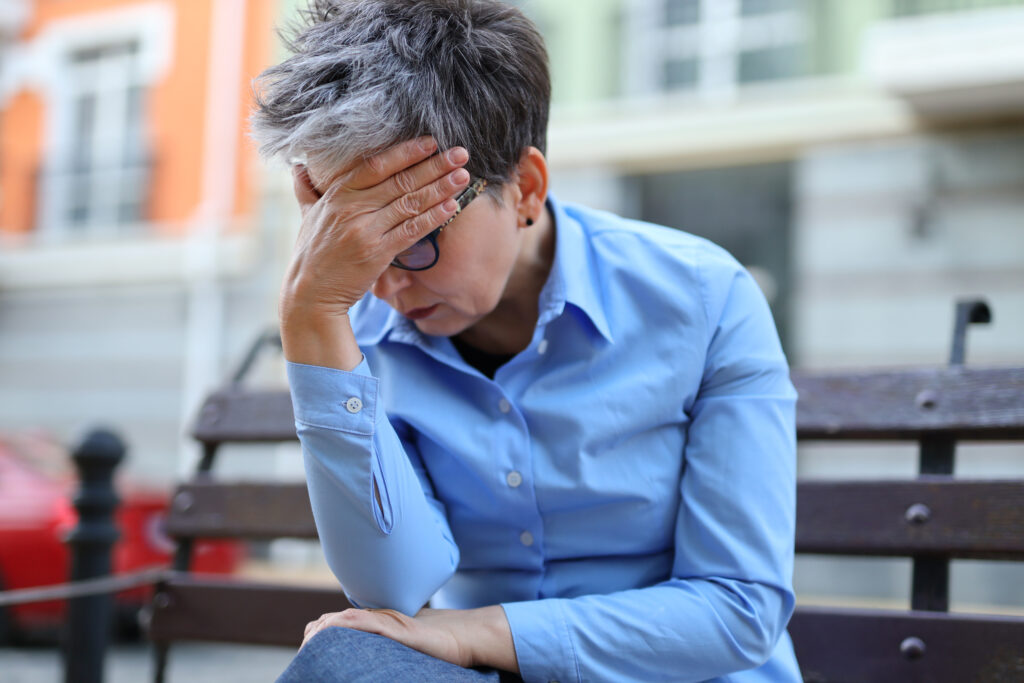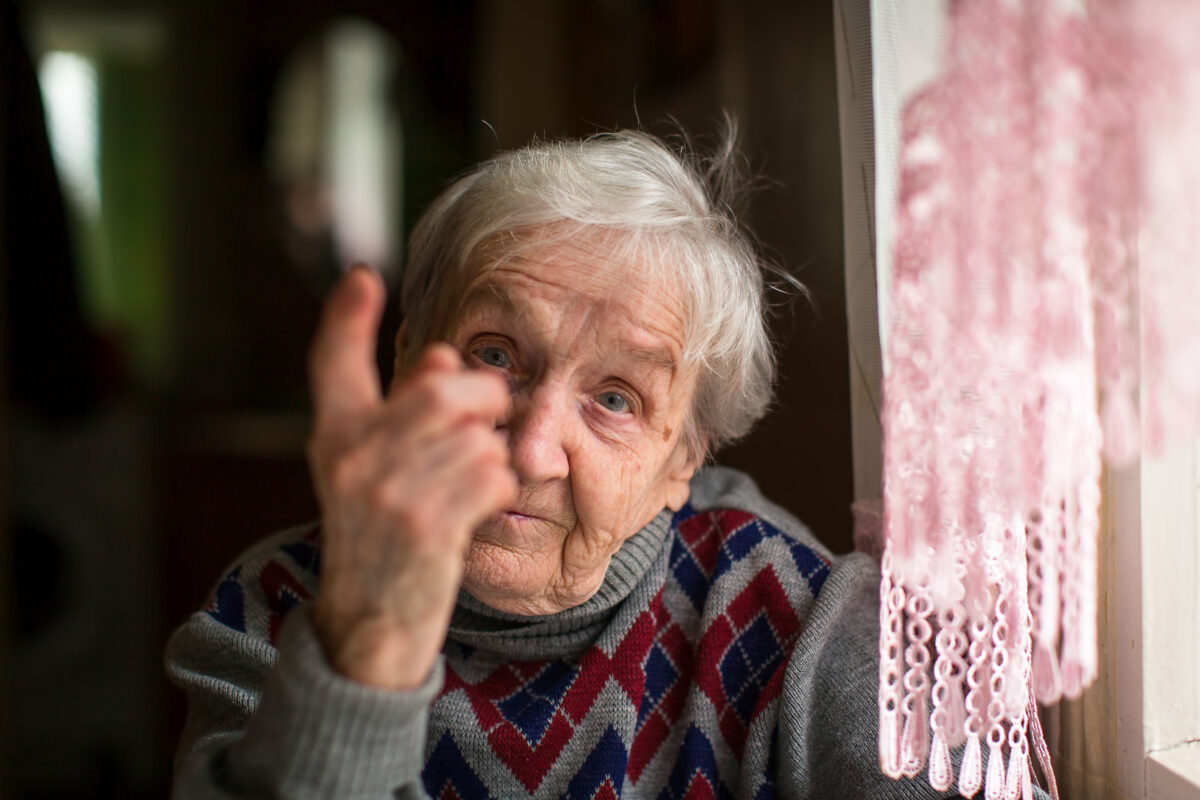It is shocking and unacceptable that some dementia patients receive abuse from their caregivers. However I am also aware that many caregivers — up to 30 per cent in some data1 — receive and deal with abuse from the dementia patient they care for.
Caregivers can also be abused by their family, who can completely misunderstand the situation that the caregiver is dealing with.
Given that the vast majority of community caregivers are female and unpaid for what they do, there is an issue here that is mostly hidden. This carer abuse is mainly undocumented and can affect caregivers both mentally and financially.
Community organisations, while supporting carers, do not seem to accept that the carers may need to recognise abuse from the dementia patient and learn to cope with it, before it accelerates to retaliation, ie patient abuse.
Difficult to talk about
I have written this article hoping to educate carers about the abuse that may happen to them. Once abuse by the patient happens, the carer may find it difficult to even talk about, because of feelings of guilt and reluctance to tell others.
What can we do about it? How can we educate others — both carers and family — so they recognise that carer abuse can be part of dementia?
People with dementia can abuse their carer. This kind of abuse, despite the fact that it is unintentional, is as unacceptable as intentional abuse, and is usually a result of the behavioural and psychological symptoms of dementia.
Are carers ‘prepared’ for the abuse that can arise while they take care of a patient?
To prevent abuse, carers must receive support. Why is this so little spoken about and acknowledged?
I am in no way condoning the abuse of dementia patients by carers. But could part of the problem be that dementia patients are abusing the ones they love – their carers? Are carers “prepared” for the abuse that can arise while they take care of a patient?
What does this abuse do to the carer’s mental and physical welfare? Are carers supported in coping and understanding the abuse that can come from dementia patients?
What strategies are the carers using to cope with the abuse they are receiving? What lessons can other carers learn from them?
Signs of carer distress
- avoiding the care recipient
- anger
- fatigue
- depression
- impaired sleep
- poor health
- irritability
- feeling of hopelessness
There are questions here that I feel are largely ignored because they are in the “too hard” basket.
I visited, loved and cared for my aunt over the final years of her life. I watched and knew she had paranoid dementia. I instantly forgave her all the abuse that she gave me – calling me dumb, a thief, a bully, and swearing at me.
She called me “the most selfish person she had ever met”, told me I had “avaristic eyes”, that I couldn’t possibly have a master’s degree because I was “too dumb”, that I was “stealing” from her (what, I don’t know), that she had to “hide her purse under her bed” (why, I don’t know).
She said similar things to me about my brothers and sisters — which I instantly dismissed, as I knew they were part of her dementia.

Communicating with my aunt became more difficult as she would frequently “misinterpret” what I said. I am sure she became frustrated or felt frightened, leading to angry outbursts.
One day I arrived to find that the lock on her outside door had broken. She told me that it was my fault and, since I owned a door factory, I should immediately fix it. It was hard not to laugh because she was serious — but I didn’t.
I tried to find a suitable company in the phone book — all the while she was getting more agitated and telling me she didn’t want them because it would “cost her money” and that’s why I should do it.
In the end I went home, found someone to help, got them to come to my place and I walked them down to do the job. I had to introduce him as one of our “employees” and paid the bill myself.
Actions born out of frustration
I never heard about the door company again. I think my aunt’s actions were born out of frustration that the door broke, knowing that she could not organise getting it fixed and fearing it would no longer lock and keep her protected.
The impact of understanding, supporting and loving my aunt while she had dementia was and is huge. But the impact of my family’s lack of understanding about my role as her caregiver has been even worse.
I had all the warning signs of needing carer support — such as avoiding my aunt, anger, fatigue, depression, impaired sleep, poor health, irritability or that terrible sense that there is “no light at the end of the tunnel”.
But when I asked my family for help, I was ignored time and again. My aunt constantly told them how she was “making all her meals, doing all her housework” etc, while expecting me to drop everything to come to her. Phone calls to clean up after an “accident” were common as she became more incontinent.
The impact of understanding, supporting and loving my aunt while she had dementia was and is huge. But the impact of my family’s lack of understanding about my role as her caregiver has been even worse.
During this time, I was also nursing my dying husband, so I tried to get help for my aunt. Presbyterian Support were offering daily help at $13 an hour, and I arranged for them to come in.
My aunt called my brother and told him that this was a “scam” and that she did not need help – she was very “independent” and could “do everything herself”. My family told me I was interfering, and I remember the exhaustion and depression that then threatened to overwhelm me.
A combination of a dying husband and a needy aunt who expected me to drop everything and attend to her was recognised by the palliative care team, and luckily they supported me. I feel it was this intervention at this time that stopped carer abuse moving into elder abuse.
I would like to see elder abuse investigated in this light -– as coming from the stress and exhaustion of being a carer.
Felt caregiver resentment
After my husband died, I felt caregiver resentment — a feeling of unfairness or irritation. I became a reluctant caregiver, caring for my aunt more out of obligation than love. I began to resent the fact she was alive but my husband wasn’t. I was the only one providing day-to-day care at this time, and resented others for not pitching in.
My aunt continued to tell the family that she was “fine” and they believed her. They did not see her on a daily basis. I resented the person I cared for, who was abusing me and, even though I was asking family for help, no one acknowledged it.
A combination of a dying husband and a needy aunt who expected me to drop everything and attend to her was recognised by the palliative care team — and luckily I could receive support from them.
What I also didn’t know is that my aunt was saying things to my family about me which they took as the truth. They never told me what she was saying – that she was “scared of me and had to hide her purse under the bed”.
They never gave me any chance to defend myself. They did not recognise what she was saying as the result of paranoid dementia.
When I suggested she had dementia, I was told she was “too intelligent to have dementia”. They supported her to change her will. After she died, they then accused me of abusing her.
They have now completely cut me off and refuse to speak to me – they refuse to hear my side of the story. They refused to share any of her possessions with me – I am even banned from having family photographs.
Losing my family
I have done nothing to deserve this and feel abused again. I am in counselling from the despair of having done my absolute best for my aunt and now losing my family because of that.
I am not telling you this to make you feel sorry for me. Rather I want carer abuse to be recognised as a real and possible product of dementia. I encourage carers who have been abused by dementia patients to speak out and talk about how they feel, to recognise the abuse and work on ways of dealing with it.
I think that left untreated, unrecognised and unsupported, carer abuse could be a precursor to elder abuse.
* The author of this opinion article is remaining anonymous, in agreement with Kaitiaki Nursing New Zealand‘s co-editors, to protect the privacy of those concerned. She is a school teacher, and has been a carer in a number of different situations.
References
- Cooper, C., Selwood, A., Blanchard, M., & Livingston, G. (2010). Abusive behaviour experienced by family carers from people with dementia: the CARD (caring for relatives with dementia) study. Journal of Neurology, Neurosurgery, and Psychiatry, 81, 592-596.





